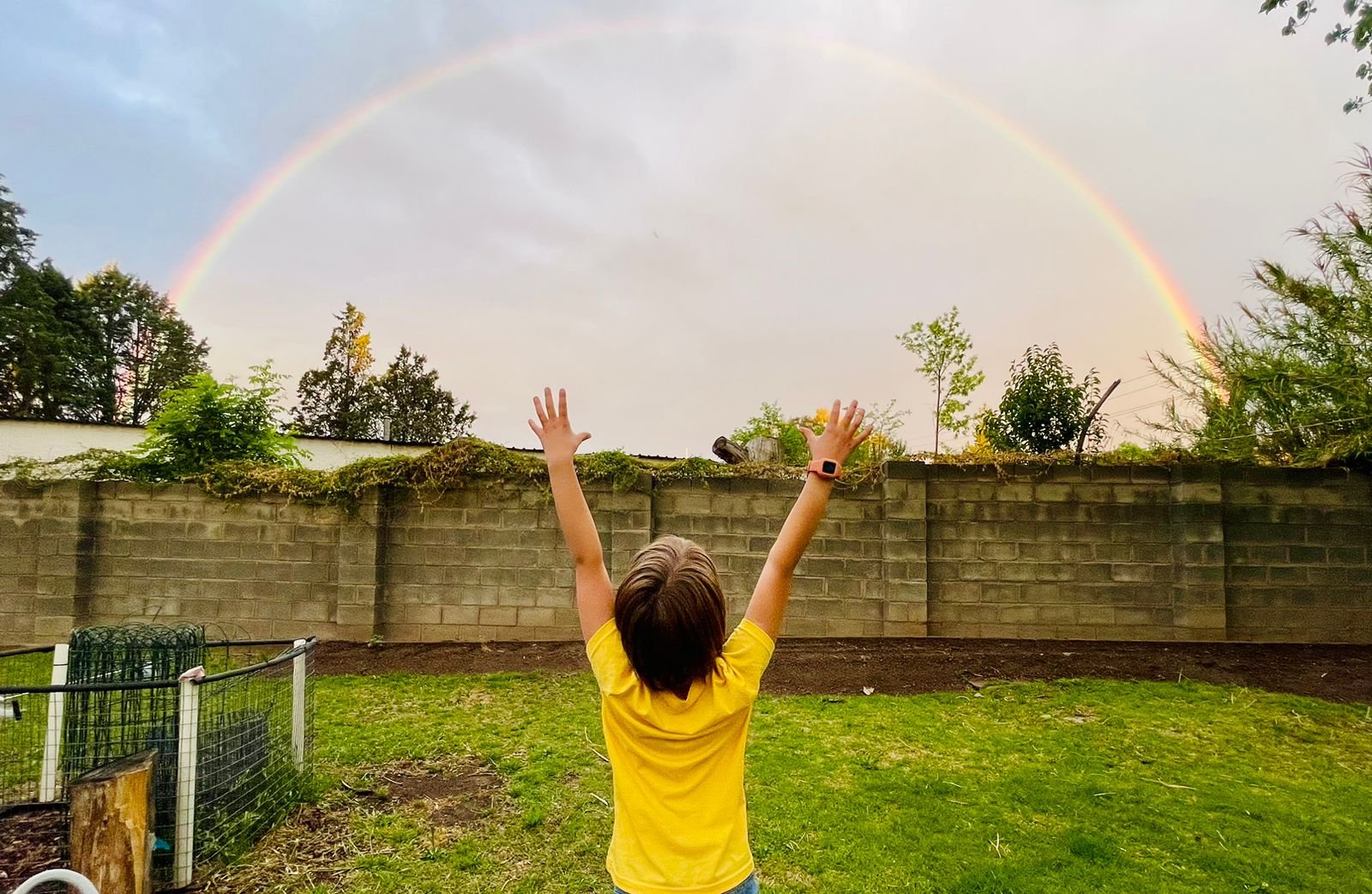Across a range of cultures and thousands of years, the rainbow seems to have always been meaningful. The marvel of how white light can split open across the sky into a range of colors, always in the same order, always in an arc, captivates us.
With the wide range of symbolism given to the rainbow, from the biblical idea of a promise from God, to the unity it represents in contemporary culture, there seems to always be one overarching idea that holds true for all: Hope.
This last year has been a tough one for Emily, specifically with her brother recovering from a severe health scare (he is a young, fit, endurance athlete and scientist who suffered a stroke earlier this year). During the darkest days of that, Emily has reflected on how seeing a rainbow with her sister-in-law Marie always somehow managed to invoke hope.
These last few weeks in Lesotho brought the rainy season to us. The ground and the crops need it, that’s for sure. But living in a bustling, developing city means that when it rains we often lose power and have sewer overflows. The roads somehow melt like sugar as soon as the rain falls, and holes open up big enough to swallow wheels of cars. The gardens get muddy, the dog turns from white to dark brown, and everything just feels a bit more exasperating.
And then a rainbow.
And sometimes a rainbow while Jane is jumping on the trampoline doing splits, which just seems to make the world ok again!
The rainbow isn’t a solution to anything. It doesn’t even really benefit us or fix anything in a concrete way, yet it seems to point towards something bigger.
South Africa, post-apartheid, has been known as The Rainbow Nation. Not only because of the coming together of all races and cultures toward unity, but also because it’s a nation pointed towards hope. The promise of what could be.
It doesn’t always feel that way though. A browse through the news in South Africa doesn’t really fill anyone with hope. Rolling blackouts (called load shedding) is the norm now throughout the country. Corruption in government departments and the deterioration of infrastructure and institutions dominates the news. It can sometimes be hard to see the rainbow through all of that.
Sometimes it takes a rugby team to show that to us.
Over the last few months South Africa participated in the Rugby World Cup, a competition that takes place every 4 years. We rarely pay attention to rugby, but as South Africa continued to do well and get through to each new round of the competition, we gained interest.
Two weeks ago we painted our faces with the flag colours and settled down to watch the semifinals against England: a game we won by a single point! A collective hope was building to the final, but we knew that playing against New Zealand would be a mighty task.
And so last week, we again painted our faces (despite watching the game from our living room in Lesotho).
What happened over the next 80 minutes was breathtaking. Seeing a team play so hard, and so fiercely was one thing. Seeing a whole nation gathered behind them was another thing altogether. For this moment no one cared about the load shedding, or the potholes, or the long list of other problems. Everyone in South Africa was focused on the game. There were tears in the stands from large tough men who had probably never had water run from their eyes before. There was a coming together of every race, culture and religion into a moment of unity.
The whistle sounded after 80 minutes of play, with South Africa victorious by a single point, once again!
That moment for South Africa was the rainbow. The promise of hope. Not a solution in itself, but a glimpse of what is possible.
We often want solutions, concrete steps of what it will take to go from A to B. “Just tell me what to do and I’ll do it,” is often how we go about our lives, our jobs, or how we face problems in the world.
The rainbow doesn’t do this.
The rainbow shines across the sky and forces us to look up, to look away from our daily concerns and problems, and to see just for a moment that the world is beautiful.
And filled with possibility.


